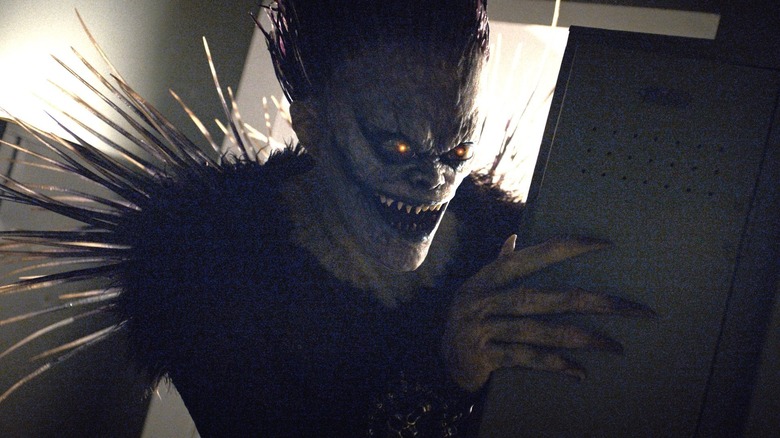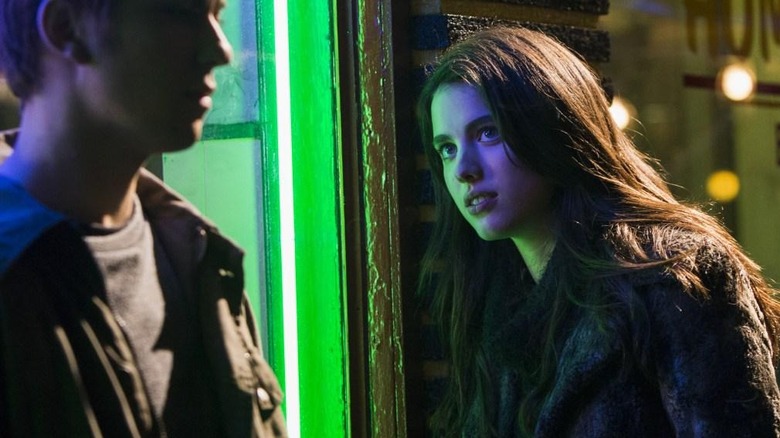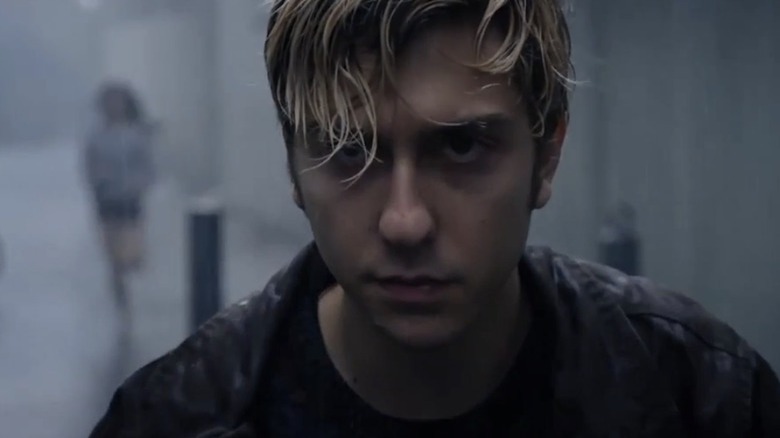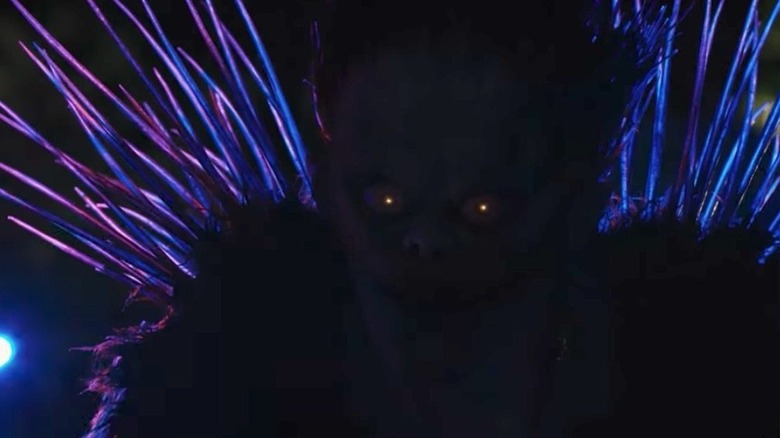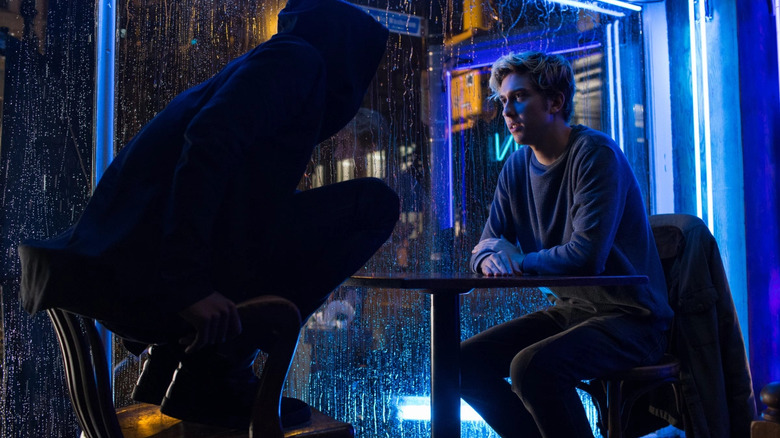The Worst Live-Action Anime Adaptation, According To 21% Of Fans We Polled
(Welcome to Survey Says, a feature where we conduct a movie-related survey for a random group of people and explain why they're completely right, completely wrong, or somewhere in-between.)
As an anime fan, I'll be the first to admit that anime fans can be a little harsh and even downright unfair when it comes to critiquing live-action adaptations of our favorite series. That said, the overwhelming disdain for certain adaptations is sometimes completely warranted. Take Netflix's "Death Note" for instance. In a recent survey, many of you expressed that it was one of the worst live-action anime adaptations of all time, and to that I say: I completely f***ing agree.
I wanted to like it, but there was so much wrong with it. Taking artistic liberties with the source material is perfectly fine when the end result is good, cohesive, and compelling storytelling, but that's not what's happened with "Death Note." On top of that, it had the added bonus of both LaKeith Stanfield and Willem Dafoe in leading roles and still managed to fall flat. Just what was it about "Death Note" that failed to resonate with fans of the anime series it was based on?
Unnecessary 'localization'
The original "Death Note" anime series is set in Japan and features Japanese characters, and it still became extremely popular with non-Japanese audiences. We live in an increasingly globalized world in which the cross-cultural exchange of media is delightfully common, and audiences in various countries and regions are often more than willing to consume content from foreign places. With this in mind, it makes the decision to whitewash and "Americanize" the characters and setting of "Death Note" extremely puzzling, if not downright insulting. There is a time and a place for tweaking content so that it is better understood in the cultural context of respective audiences, but this wasn't one of those times.
There is an underlying implication that Netflix's target demographic would somehow fail to connect with the story if the original setting and characters were left largely unchanged, but the success of non-Western media like "Squid Game" and "All of Us are Dead" on the platform in the years that would follow the terrible live-action "Death Note" movie proves otherwise. On top of that, fans of the original anime and manga had no issues with the setting and characters as-is, so there was even less reason to change things in this way.
Light's personality & backstory change
To add insult to injury, the way Light Yagami was transformed into Light Turner went beyond a mere surname swap. Part of the appeal of Light as the main character in the anime is that he was gifted, charismatic, and well-liked. All of those qualities were stripped away with his American counterpart, who is, quite frankly, a whiny pissant. Yes, Light Turner is also academically gifted, but he's also extremely annoying and a one-dimensional "misunderstood loner" stereotype. This personality change adds nothing to the story, and takes away one of the main things that made Light Yagami such an interesting antihero to begin with.
In the anime, he has everything going for him, and even feels he has noble intentions, but it becomes increasingly obvious that he's a terrible human being, going so far as to let his father die and kill innocent people because he felt his ultimate goal for a "new world" justified the atrocities he committed along the way. Changing this key part of Light's characterization weakens the impact of having an otherwise likable guy live a double life as a serial killer with a god complex. In contrast, Light Turner is the kind of guy who spouts legal technicalities at bullies and thinks that will save him from getting his ass kicked. Bullies suck, to be clear, but anyone who commits acts of aggression unprovoked probably isn't going to be swayed by reminding them of the law.
Additionally, Light Turner was given a sad backstory to help further justify his decision to use the Death Note, widening the departure from the source material in which Light Yagami had a happy home life and had never really suffered any personal injustice. The decision to keep piling on ways to justify Turner's use of the Death Note is even more bizarre when, unlike Light Yagami, Light Turner is also manipulated by Ryuk and Mia (Misa Amane's live-action counterpart) into committing most of his heinous acts rather than being the calculating, utilitarian killer his character is in the anime.
"Death Note" the anime is about a teenage mastermind who feels he can fix the world by having a say in who lives and dies, while "Death Note" the live-action Netflix movie is about a deeply uninteresting and unlikeable guy being used a pawn by people even more f***ed up than he is. Basically, turning "Death Note" into some generic revenge story gone wrong was a terrible call, and that's only one of many offenses that make the live-action Netflix adaptation worthy of the disdain it has garnered.
Waste of great talent
Even with the apprehension concerning the not-so-fantastic track record of live-action anime adaptations, many "Death Note" fans were looking forward to seeing Willem Dafoe take on the role of Ryuk, the terrifying (or incredibly cool-looking, depending on who you ask) Shinigami. He's mostly shown in shadow or from behind, so we don't even get to see just how frightening he looks — just imagine how amazing it would have been to see Willem Dafoe serving us otherworldly creepiness, decked out in full shinigami regalia. He's such an emotive actor, the effects team and costume designer could have given him some discount halloween paint and a mall goth outfit fished out of a Hot Topic basement and it would have been nothing short of amazing.
And then we have Lakeith Stanfield as L, which was, in theory, another great casting choice because the eccentric "Atlanta" star is just the right kind of quirky and weird and to do justice to a character like this. Unfortunately, as was the case with Dafoe, Stanfield isn't given much to work with either. Really, none of the actors are. The movie's failure to impress isn't the fault of the actors, who seem to have done the best with what they were given; instead, the blame lies in the fact that they were given so little to work with despite their potential.
Key relationships are terrible or non-existent
We don't get to see the deceptive friendship or cat and mouse dynamic between L and Light that intrigued us in the anime. We don't get to see the camaraderie between Light and Ryuk. We don't really get anything good with the strange changes that were made, and capable actors can't save it. Instead, much of the movie is spent displaying the weird, unconvincing high school relationship between Light and Mia. They have no chemistry, and so they make for an unconvincing couple. Mia is also kind of a sociopath, but not in a way that is interesting or makes sense.
That's kind of the issue so many of us had with the movie, really. Netflix's live-action "Death Note" adaptation didn't make sense in terms of the major narrative changes and the story we were left with, and it failed to be entertaining on top of it all. Ultimately, "Death Note" is one of the few popular anime that could easily be adapted into a really great live-action film. There aren't any complex fight scenes, outlandish character designs, or fantasy elements that would be too difficult or costly to recreate convincingly, yet we still got something so painfully watered down and unnecessarily far-removed from everything that was great about the source material. The story lends itself so readily to a fantastic live action adaptation, and yet every good thing about it, every little thing that made it the perfect anime for the live-action treatment, was stripped away. With all the unnecessary changes to the essence of the original story, it feels a lot like a "Death Note" movie made by someone who didn't particularly like or understand the appeal of the "Death Note" anime.
